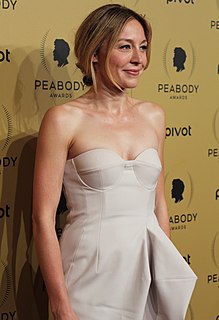A Quote by Robert Henri
Reality is obtained not by imitation, but by producing the sense of nature.
Related Quotes
Producing is a wonderful foil to being an actor: acting being largely about getting out of my head, being present, a little irresponsible, whilst producing is the polar opposite. You need other players to act; you can't act in a void, but producing is about making something out of nothing - conjuring a thought or an idea into reality.
I believe I am looking for rightness. My work has so much to do with reality that I wanted to have a corresponding rightness. That excludes painting in imitation. In nature everything is always right: the structure is right, the proportions are good, the colours fit the forms. If you imitate that in painting, it becomes false.
We call our intuition our sixth sense, but in reality it would be called our first sense, because it's rooted in quantum nature of reality. It was around long before our solar system and our planetary system were even formulated or even organized. It is at the basis of how our normal sensing works. So instead of being our sixth sense or even â€" using the parapsychological term â€" "extrasensory perception," it's not. It's at the basis of our perception, and that's the quantum world.
It may well happen that what is in itself the more certain on account of the weakness of our intelligence, which is dazzled by the clearest objects of nature; as the owl is dazzled by the light of the sun. Hence the fact that some happen to doubt about articles of faith is not due to the uncertain nature of the truths, but to the weakness of human intelligence; yet the slenderest knowledge that may be obtained of the highest things is more desirable than the most certain knowledge obtained of lesser things.
It is no wrong or injustice that one has many bags of the finest myrrh and garments embroidered with gold, while another has not those things, which are not necessary for our maintenance; he who has them has not thereby obtained control over anything that could be an essential addition to his nature, but has only obtained something illusory or deceptive. ...This is the rule at all times and in all places; no notice should be taken of exceptional cases, as we have explained.
Biomimicry is innovation inspired by nature. In a society accustomed to dominating or 'improving' nature, this respectful imitation is a radically new approach, a revolution really. Unlike the Industrial Revolution, the Biomimicry Revolution introduces an era based not on what we can extract from nature, but on what we can learn from her.







































